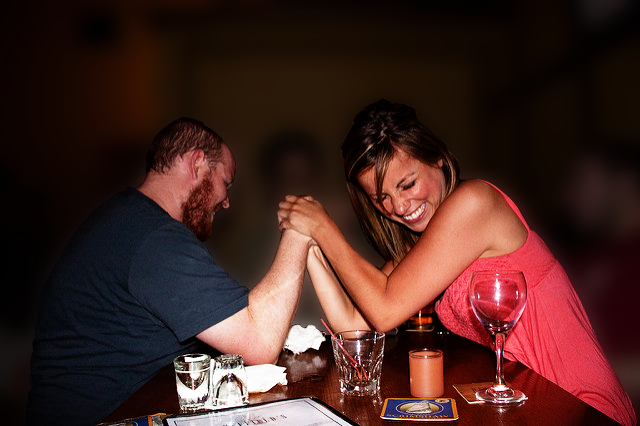 In any relationship worth having conflicts and fights are bound to arise. The true test of the relationship is whether or not you feel that it is worthwhile to resolve these conflicts and if you are able to do so in a fair and objective way.
In any relationship worth having conflicts and fights are bound to arise. The true test of the relationship is whether or not you feel that it is worthwhile to resolve these conflicts and if you are able to do so in a fair and objective way.
The five secrets to fighting fairly include sticking to the issue at hand, being open to listening to the other person, not involving others in the fight, not bringing up old issues and finally being willing to accept responsibility for your part in the issue and being able to let it go when the fight is over even if no resolution has been immediately found.
It’s important to know what you are fighting over and to stick to that issue in the argument. If you allow things to build up over time and then explode neither you nor your partner will have a clear understanding of what the issue is or why you are fighting.
If there are many issues it is important to address each of them separately as they arise to alleviate resentment and fighting that does not have a clear focus.
Sometimes all you need to do is just listen
Listening is also a very important component of fighting fairly. It is imperative to allow your partner to offer his side of the argument. Fighting without listening will not be effective because it does not allow you to be open to the other person’s opinions and beliefs.
Your partner may have a very valid reason for their actions, thoughts and feelings but if you are only interested in what you have to say and are unwilling to listen you will not understand their point of view.
Another aspect of listening is to really try to understand what the other person is saying. It’s very easy to not hear the intent of a person’s message. In a fight you want to actively clarify your partner’s statements and give them the opportunity to affirm or deny your interpretation of their argument.
Bringing others into a fight, other than your counsellor, is also not a fair way to fight. It is important that the fight take place between those directly involved and that neither party elicits the help of friends or family members to validate their position.
It doesn’t matter how many other people agree with you, that does not necessarily make you right, so don’t involve others in your fight. This is not only unfair to your partner but it is also unfair to those who are dragged into the argument.
In a fair fight it is also important to not bring up old issues. A fair fight will remain focused only on the issue at hand and bringing up the past will only distract and send the message that the past has not been forgotten. If your partner feels that you are bringing up old issues, he may feel as if the current fight is not worth fighting because it will not be forgotten.
And if you convey the message that you are not willing to forgive and forget there is also the possibility that your partner will withdraw with a belief that there is no point in resolving this issue anyway. Also, bringing up old issues is simply not relevant to the current fight. A fair fight must simply be focused on a current conflict only.
Another secret for fighting fairly is to be willing to accept responsibility for your own actions and be willing to reach a resolution so you can both move on from the argument. Those who fight fairly are prepared to concede the fact that they may even lose the argument. Losing the argument means either that you admit that you were to blame for a situation or that you have come to understand and accept the others perspective.
Leave the fight in the past
What is most important in a fair fight is not who is right or who is wrong but that you are able to reach an amicable agreement and that you are both able to progress and leave the fight in the past.
Fighting fairly is crucial in a healthy relationship. Disagreements are natural and resolving them in a fair way is imperative to a thriving relationship. Not fighting fairly is indicative of a relationship that is not healthy. A fair fight incorporates the key elements of focus, listening and resolution without involving third parties in the fight. A fair fight is also left in the past after resolution. Fair fighting leads to some kind of resolution even if that means you may have to agree to disagree.
So until next time – Relate with Love









